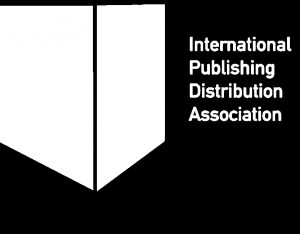In 2009 we contemplated the reading promotion and the publishing industry as if they were blank slates waiting for a next vision of the future to be defined because of the impact of Internet and digital devices. We despaired when we had no response to many of our attempts for engaging the institutions in reimagining the value propositions, workflows, procedures and even goals. During those days FGSR team used to believe that it was urgent to build a radical redefinition of numerous concepts in order to preserve and underpin our world of books and reading.
Ten years later (2019) our team had learned many things from our researches, surveys, partnerships and, most of all, from our experimental projects. Many of those lessons made us to deem our first efforts as a sort of naïve initiatives lacking of a realistic foundation.
But after this pandemic year (2020) it became starkly clear that this unusual crisis accelerated changes that we presumed were coming already but didn’t expect to see so soon in the book market. We have to admit that major transformations that were predicted to occur in years are happening in months: content convergence, remote work, generalisation of the virtualization of supply chain, and fast and continuous changing customer expectations about content and user experience.
Fast digital acceleration during the pandemic has cemented technology and lean management as the cornerstone of the survival in the market. The gap between publishing industries with a strong digital process and those which were “slowcoaches” it’s shown in the different evolution of the figures in each market during 2020.
During all these years, our industry has been optimistic in its self-assessment, thinking that we are further along in our digital transformations than they we are. But, by the other hand, there is a ground for a fast adaptation with a change-readiness mindset and using available digital tools and new definitions of value.
I still believe -as I did twenty years ago- that constraining to a wait-and-see approach will land publishing companies on the wrong side of that gap. But I can see that not always innovation and survival will come from companies embracing utterly different mindsets and business models.
Therefore, today FGSR strategy is different, is more helping the industry and the reading organizations (libraries and education) to adapt to the immediate changes which are clear linked to the digital acceleration. One of our tools is designing a new kind of training:
- From the methodological perspective: more hands-on and collaborative experiences.
- From the areas of interest: more focused on integrating digital blocks in the traditional publishing industry.
One of the examples of this strategy is our participation in the project SIDT Books (which stands for Sustaining and Innovation cultural Diversity in literary Translation), supported by Creative Europe funding. This project aims to build bridges between proven innovators and practitioners, with a mix of research and a set of hands-on training modules, SIDT Books has the skill to identify and disseminate relevant best practice models and market analyses for small and medium-sized book publishing and retail companies.
Another feature of this strategy are the “Bootcamps of the publishing” that we are implementing with the support of the Ministry of Culture of Spain. The goal of this pack of seven training units is to bring together decision makers, young talent and leading industry experts to share their knowledge and skills as well as learn how to apply novel business practices.
The trainees will have access to the potential of new digital tools to improve their adaptation to the market, discover how to establish alliances with technology start-ups so that they work with us as a white label, learn how to integrate the dynamics of the pre-test that is common in other industries into their production processes, incorporate the innovations derived from the changes in the type of content as another facet of their work and learn how to redirect content based on readers’ behavioural data.
These bootcamps also integrate design thinking sessions dedicated to identifying the problems or challenges facing the publishing industry and another experience challenging the participants to understand how to build an effective relationship using the internet and provides hands-on experience with creating a one-page (basic e-commerce) website using a WordPress tool.
The aim of this strategy is sharing insights and tools for increasing of the efficiency within the book world, such as circular value chain, cross-industry management, new combinations for supply chain tracking and payment capabilities, with special interest in blockchain, print on demand, data sharing, user experience or triangulation solutions.
I believe now that this strategy could disseminate the skills on building digital blocks to strengthen the efficiency of the SMEs and big publishing companies and bolster their chances to compete with the platform business model companies.
As members of the book and reading European ecosystem we should understand the meaning of this pandemic shock: we are no longer strictly competing for market share with the digital platforms; we are competing to build our vision of the future faster than those new players and engage more and more people. We should focus also on our ability to accelerate and master small and big transformations in all parts of the business, which in turn will be a direct goal of the technology decisions we make today.
One of distinctive features of this European book & reading ecosystem should be the generation of social impact. Digital tools are agnostic and we keep thinking that the publishing industry ought to embrace them to make a change, but an European way of digital change means a new model after the pandemic built on our shared European values.
Luis González
Managing Director of GSR Foundation (Spain)






